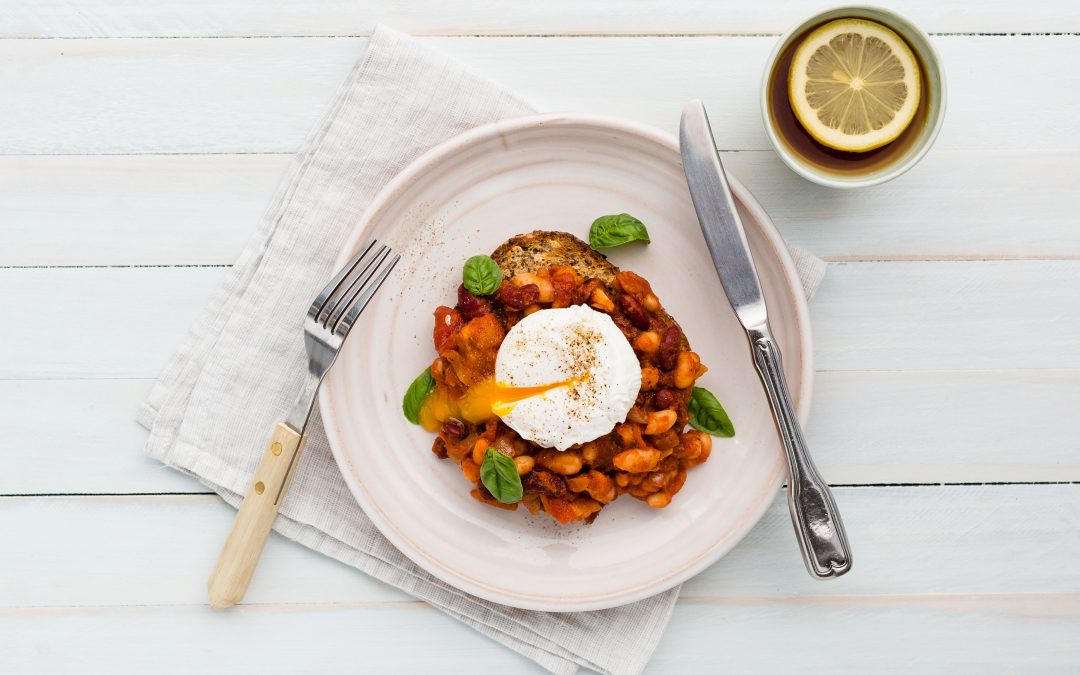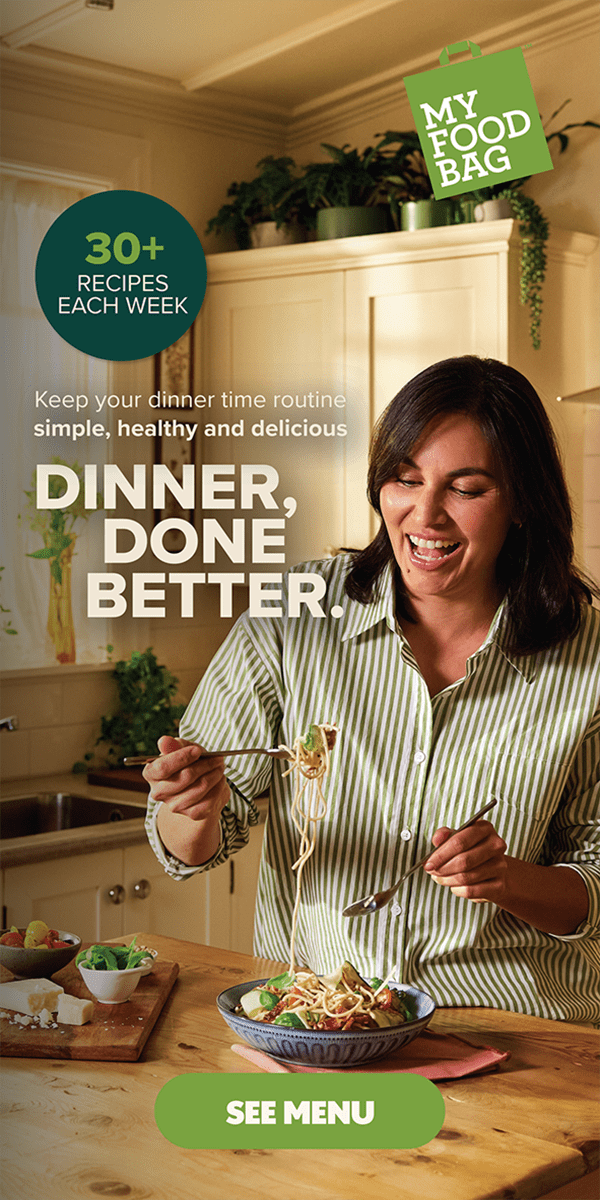My Food Bag chef Amelia ‘Amaretti’ shares the best vegan baking alternatives to use for different recipes.

Ever come across a recipe that looks super scrumptious, only to see that it contains ingredients that don’t align with your lifestyle? No worries! Our lovely plant-based chef Amelia ‘Amaretti’ shares which vegan baking alternatives to use as substitutes. Easy!
Fats & oils
There are many vegan butter alternatives available in the market, such as Olivani and Nuttelex. These work well in place of regular butter for things like cookies, cakes and icing. However, don’t be fooled!
A lot of plant-based butters are essentially just margarine, which is vegetable oil that has been hydrogenated to turn the oil from a liquid to solid at room temperature. Because of this process, vegan butters or margarine can impart a funny flavour when cooked at high temperatures.
So, they are okay in cookies and cakes but aren’t ideal for things like caramel. If you don’t like the idea of vegan butter, olive oil works well in baking (especially cakes and loaves). Coconut oil is also a good substitute, but it doesn’t act quite the same as butter in baking, so be careful.
Eggs
In savoury cooking, chickpea flour is a great substitute for eggs in many recipes once hydrated with water or milk. However, it has a very savoury flavour that isn’t ideal in sweet recipes. For baking cakes, some recipes have higher amounts of oil and sugar to substitute for the lack of moisture and binding capacity that eggs have.
You can use flax eggs in lots of recipes, however it is best to use them in chocolate-based recipes, as the ground flax imparts a strong flavour that is well masked by cocoa or chocolate. I would not recommend using flax eggs in vanilla cakes or cookies, as you will be able to taste it.
Mashed banana, mashed kumara or apple sauce (quite American) can also be used in place of eggs, but these kinds of high-moisture subs are best for cake recipes. Eggs can be a tricky substitute. They are crucial to texture as they act as a binding agent, leavening agent and emulsifier to establish structure and stability in baking, which is hard to come by from natural plant-based sources.
Aquafaba (or the brine from a can of chickpeas) is quite amazing and can be whipped up like egg whites. (Nadia’s Aquafaba Chocolate Mousse recipe is a great example!) You can make meringues with aquafaba but be sure to use cream of tartar to stabilise the mixture once whipped and baked.
Milk
Milk is quite easy to substitute in baking, as many recipes would work just as well with plant-based milk. I like to use oat milk in baking, as it is creamier than almond milk and has a mild flavour.
Soy milk can work in some recipes, however if used in large quantities it can make things taste quite soy-ish! Coconut milk can be a good substitute for regular milk in things like custard, panna cotta and ice cream, however it is much higher in fat so should be used with caution to prevent splitting.
Silken tofu
Silken tofu is a great product to use in vegan baking. When blitzed in a food processor or NutriBullet, it achieves a silky smooth, creamy texture. When combined with melted coconut oil, it can be set into cheesecakes, mousses and many more (click here for vegan snickers cheesecake bars recipes).
Because tofu is made of soybeans, it is high in protein but much lower in fat compared to cashew-based vegan desserts. The texture is also completely smooth, opposed to cashews which give a slightly grainy texture. The best silken tofu to use in baking is the ambient kind that comes in a tetra pack, as opposed to the fresh, refrigerated kind. When combined with nut butters, chocolate or other flavours, you won’t even know it’s made of tofu!

